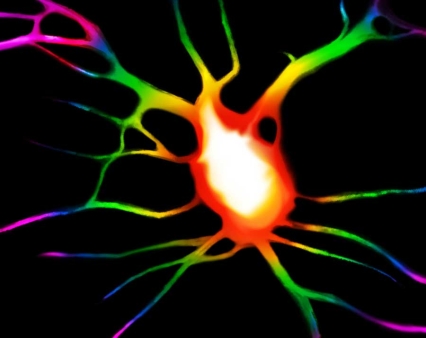Authors:
NINDS Director Walter J. Koroshetz, NIMH Director Joshua A. Gordon, NIA Director Richard Hodes, NIDA Director Nora D. Volkow, NCATS Director Christopher P. Austin, NICHD Director Diana W. Bianchi, NEI Director Michael F. Chiang, NIDCR Director Rena D'Souza, NIAAA Director George F. Koob, NCCIH Director Helene Langevin, NIH BRAIN Initiative Director John J. Ngai, OBSSR Director William T. Riley, NIBIB Director Bruce J. Tromberg, NIDCD Director Debara L. Tucci, NIEHS Director Rick Woychik, NINR Director Shannon N. Zenk
Inherent in the mission of NIH is that biomedical research and its application can and should benefit all people. Significant events across our nation over the past year and frank discussions in the research community have led to deep reflection at NIH about biases and disparities faced by underrepresented groups in the research enterprise. As we strive to recognize our own role in these challenges, we affirm our commitment to diversity and to positive change to eliminate racism in our community and in our organization.

As a step towards that change, the NIH Institutes, Centers, and Offices that are part of the NIH Blueprint for Neuroscience Research and the NIH BRAIN Initiative, strongly encourage the neuroscience community to take advantage of the new NIH-wide Faculty Institutional Recruitment for Sustainable Transformation (FIRST) Program, supported by the NIH Common Fund. Although progress has been made to increase participation of historically underrepresented groups in biomedical training stages, members of these groups are still less likely to be hired into positions as independently funded faculty researchers. These populations include underrepresented racial and ethnic groups, individuals with disabilities, individuals from disadvantaged backgrounds, and women.
To help address this disparity, the FIRST program aims to enhance cultures of inclusive excellence through institutional support for recruitment of diverse “cohorts” of early-stage research faculty. Here, “inclusive excellence” describes the cultivation of scientific environments that can engage and benefit from a full range of talent. Neuroscience continues to be one of the fastest growing areas of biomedical research. We want the FIRST program to enable researchers to thrive, and we believe the broader neuroscience community has much to gain. Indeed, the growing field of the Science of Diversity shows the positive impacts that result when heterogeneous teams apply diverse perspectives and expertise to research challenges. We are hopeful that the cohort hiring model in FIRST will succeed in turning the culture in neuroscience departments and their institutions toward greater inclusion and diversity. We fully recognize that there are structural barriers perpetuated by gaps and that critical improvements must be made, because many groups are severely underrepresented in neuroscience. To our neuroscientists: we encourage you to take advantage of this opportunity as a path to meaningful change. We are committed to fostering a more inclusive, equitable, and diverse neuroscience community, and the FIRST program is a step in the right direction, with many, many more steps to come.
The objectives of the FIRST program are twofold: to support institutions in hiring diverse cohorts of early stage research faculty; and to transform culture at NIH-funded extramural institutions by building a community of scientists who are committed to diversity and inclusive excellence. In addition to funds for hiring, the program will support new and strengthened institution-wide approaches to facilitating the success of cohort members and future faculty from diverse backgrounds. For cohort members, this is likely to include mentoring, sponsorship, and networking opportunities. For institutions, this may include training faculty in approaches known to foster inclusive excellence and changing the rubric for interviewing processes. The FIRST program will also fund a coordination and evaluation center, which will develop and guide the collection of common data metrics to rigorously assess the effects of FIRST faculty cohorts and institutional activities on the research culture at funded institutions. Lessons learned by these institutions will be shared with the broader biomedical research community.
The FIRST program is expected to fund 12 awards over the next three years, plus the coordination and evaluation center, with an estimated budget of $241M over nine years, contingent upon the availability of funds. The first receipt date for the program’s funding opportunities is March 1, 2021. For more information, please also view the recent technical assistance webinar.
Related Resources:
- The NIH Common Fund’s Faculty Institutional Recruitment for Sustainable Transformation (FIRST) program
- NIH Faculty Institutional Recruitment for Sustainable Transformation (FIRST) Program: FIRST Cohort(U54 Clinical Trial Optional)
- NIH Faculty Institutional Recruitment for Sustainable Transformation (FIRST) Program: FIRST Coordination and Evaluation Center (U24 Clinical Trial Not Allowed)
- FIRST Program Technical Assistance Webinar: Watch a recording of the webinar.
- FIRST Program FAQs
- NIH Blueprint Research Initiatives
